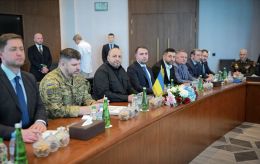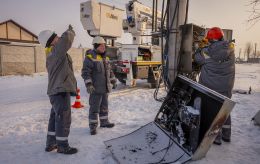IDF soldier Roman Goldman: 'Hamas wouldn't have attacked Israel without Kremlin's coordination'
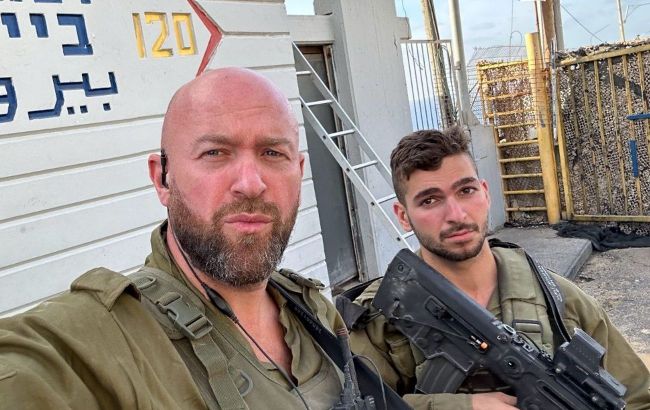 Photo: IDF soldier Roman Goldman (facebook.com/Roman Goldman)
Photo: IDF soldier Roman Goldman (facebook.com/Roman Goldman)
Roman Goldman, in an interview with RBC-Ukraine, talked about the war in Israel and Ukraine, his service in the IDF (Israel Defense Forces), and how the country lives under constant threat of terrorist attacks.
It has been almost two months since October 7 when Hamas terrorists invaded Israel, launching thousands of rockets across the country. The militants brutally killed civilians and took numerous hostages.
The IDF continues its military operation in the northern Gaza Strip. In the early days of the massive attack on Israel, thousands of volunteers from different countries rushed to the country. Roman Goldman, the founder of the Ukrainian-Israeli mission of medical volunteers, Frida, is one of them. Currently, Roman Goldman serves in an IDF unit responsible for rescuing downed pilots and medical evacuation of soldiers from the battlefield.
Here is the abridged conversation with the military. Full interview you can see on the video below.
Roman, not long ago, we saw photos of your humanitarian missions in Ukraine on your social media. You and the doctors went to hotspots in Kherson and Donbas to help civilians. And now, you are in the Israeli army. Tell us how you ended up where you are now.
In Ukraine, I represented Israeli doctors in the Frida mission. Back then, it was hard to imagine that I would have to return to my country as a soldier. To recall my skills, the military spirit, and be with my people. Essentially, I dropped everything and went because I had a civil duty.
I am currently on the border between Lebanon and Israel. On the other side, our neighbors, the terrorist organization Hezbollah, are firing at Israel, trying to harm civilians and infrastructure.
In the army, I am essentially doing the same thing I did in Ukraine: I am part of the emergency response team for evacuation, working alongside infantry and the Golani Brigade. This is one of the most powerful brigades in Israel with a rich history (formed in 1948). My function is evacuating the wounded and transporting soldiers from the battlefield.
Israel was able to mobilize an unprecedented number of volunteers. Reservists from around the world came to defend the country. These are people of different professions from different countries. In the first days of the war, the Israeli army expanded to 300,000 people in just a few days. How, in your opinion, was this possible?
These figures are truly impressive: we were able to mobilize 360 thousand reservists, with the task of recruiting 300 thousand. However, an additional 60 thousand arrived at military bases and said, "We are staying, we will spend the night here, and we will help with everything."
I would call it a phenomenon. You see, Israel's borders are not closed. Anyone can come if they want. There is no trend of refugees in Israel. People are not fleeing or leaving massively. Almost all foreign airlines canceled flights; only Israeli airlines remain, conducting evacuation flights in cooperation with Europe.
Residents of the northern part of the country, where cities like Shlomi and Ma'alot-Tarshiha are located, were asked to evacuate to the south and center of Israel. About 150 thousand Israelis had to leave their homes. Undoubtedly, these numbers are incomparable to what is happening in Ukraine today.
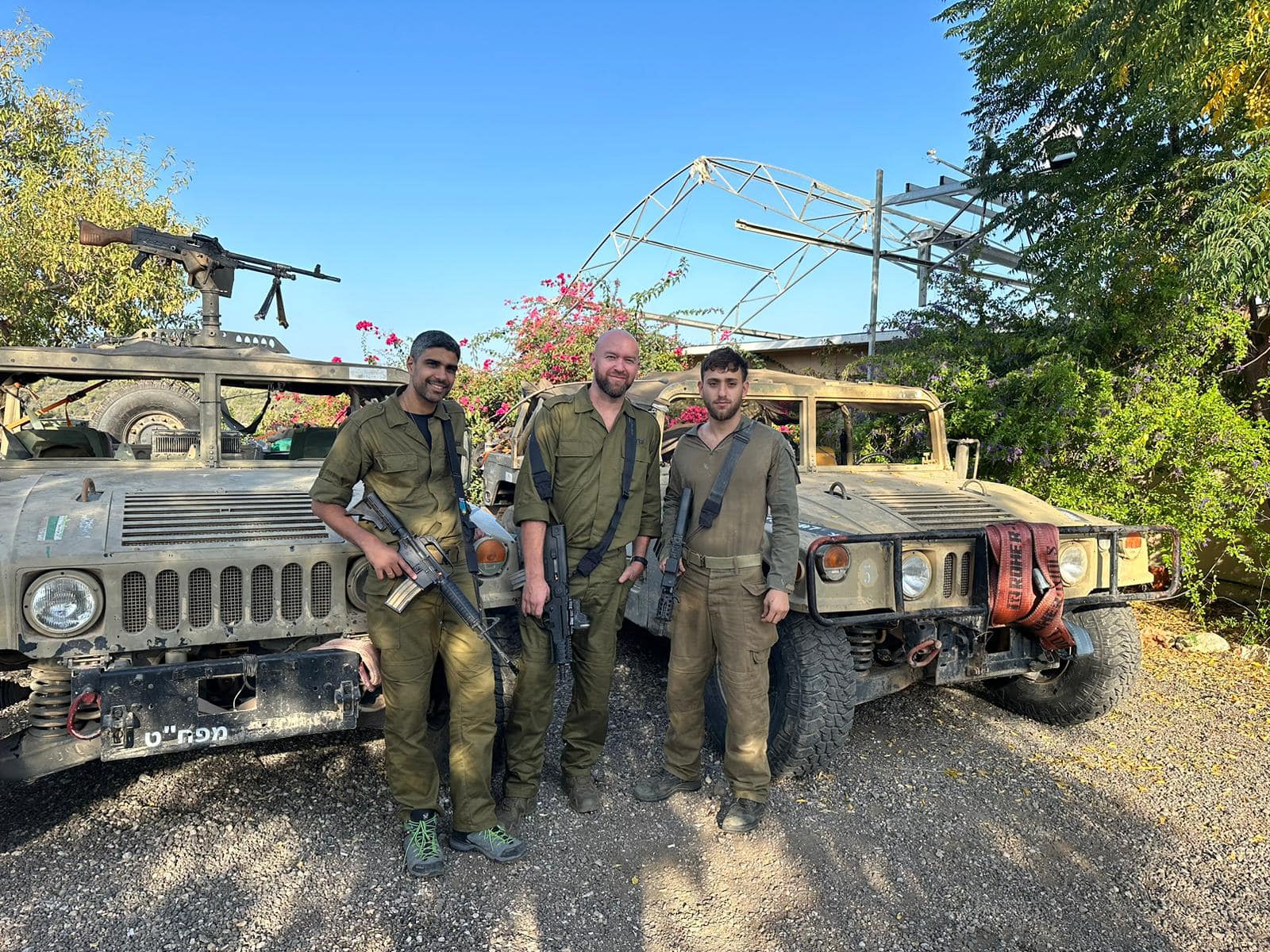
Photo: Thousands of volunteers gathered in Israel from the first days of the war (facebook.com/Roman Goldman)
What were your first impressions of the Israeli army? In your opinion, what experiences should Ukraine adopt from Israel in the context of national defense? And vice versa – what could Israel learn from Ukraine?
Every reservist who once served in combat units is assigned to their battalion. There is the so-called Draft No. 8 - when a reservist receives this document, they must come to the base within 12 hours after receiving it. Draft No. 8 means that war has begun. Soldiers come to the bases and receive weapons, uniforms, and body armor.
The Israel Defense Forces (IDF) today have about a million people, and it takes time to launch the entire logistics. With such a number of mobilized, Israel was not fully prepared, and we saw a large number of volunteers and philanthropists trying to provide the military with everything they could: from clothing to power banks and body armor.
I can say that the Ukrainian army is more progressive in some aspects than the Israeli one. The aggression Ukraine is experiencing today is unparalleled. The Russian Federation is using everything in Ukraine: from ballistic missiles to aviation. Thankfully, Israel has not yet felt such aggression, and we hope it won't. But I can say with full responsibility that in terms of tactical medicine and soldier training, both the Ukrainian and Israeli armies are at a high level.
Speaking of Israel, as far as we understand, no one can accurately say when the war will end. How do you personally anticipate the developments in the near future?
We are ready for any development of the war at any moment. Our best brothers are currently on an important mission in the Gaza Strip.
Personally, it seems to me that the worst fear we had about entering Gaza is already behind us. Most of the Hamas leaders have already been eliminated, a significant blow has been dealt to the terrorists' infrastructure, and the headquarters controlling all their activities has been hit. The logistical support – from the internet to fuel supply – has been eliminated. This has caused significant chaos in the leadership of Hamas. And all of this is already showing certain results of the special operation.
How does Israeli society perceive Russia's essentially anti-Israeli position in this war? Putin blamed Israel and the United States, and in Moscow, they demonstratively welcomed a delegation of Hamas militants. There was a wave of anti-Israeli actions in Russia, it even came to storming the airport in Makhachkala by an aggressive crowd.
We see Russia's full support for Hamas terrorists, not Israel. We perceive a global geopolitical game in which Russia strategically needs this war to divert the world's attention from its crimes in Ukraine. We know that Hamas is a hundred percent ally of Iran, and Iran is their financial donor. From open sources, we know that Russia is an ally of Iran.
As an Israeli, I am convinced that a war of this scale, with around 3,000 Hamas terrorists attacking Israel, would not have occurred without coordination with the Kremlin.
I can also say unequivocally that the entire Israeli society understands what is happening in Ukraine and does not support Russia in any way. Ukraine and Israel have warm relations in general. It is a history that unites us, and Ukraine has one of the largest Jewish communities. Ukrainians who came from Kharkiv in the late 18th century founded Israel.
Leaders of Israel, from Golda Meir to Meir Dizengoff, the first mayor of Tel Aviv, were immigrants from Ukraine. Our warm relations have only strengthened due to the war.
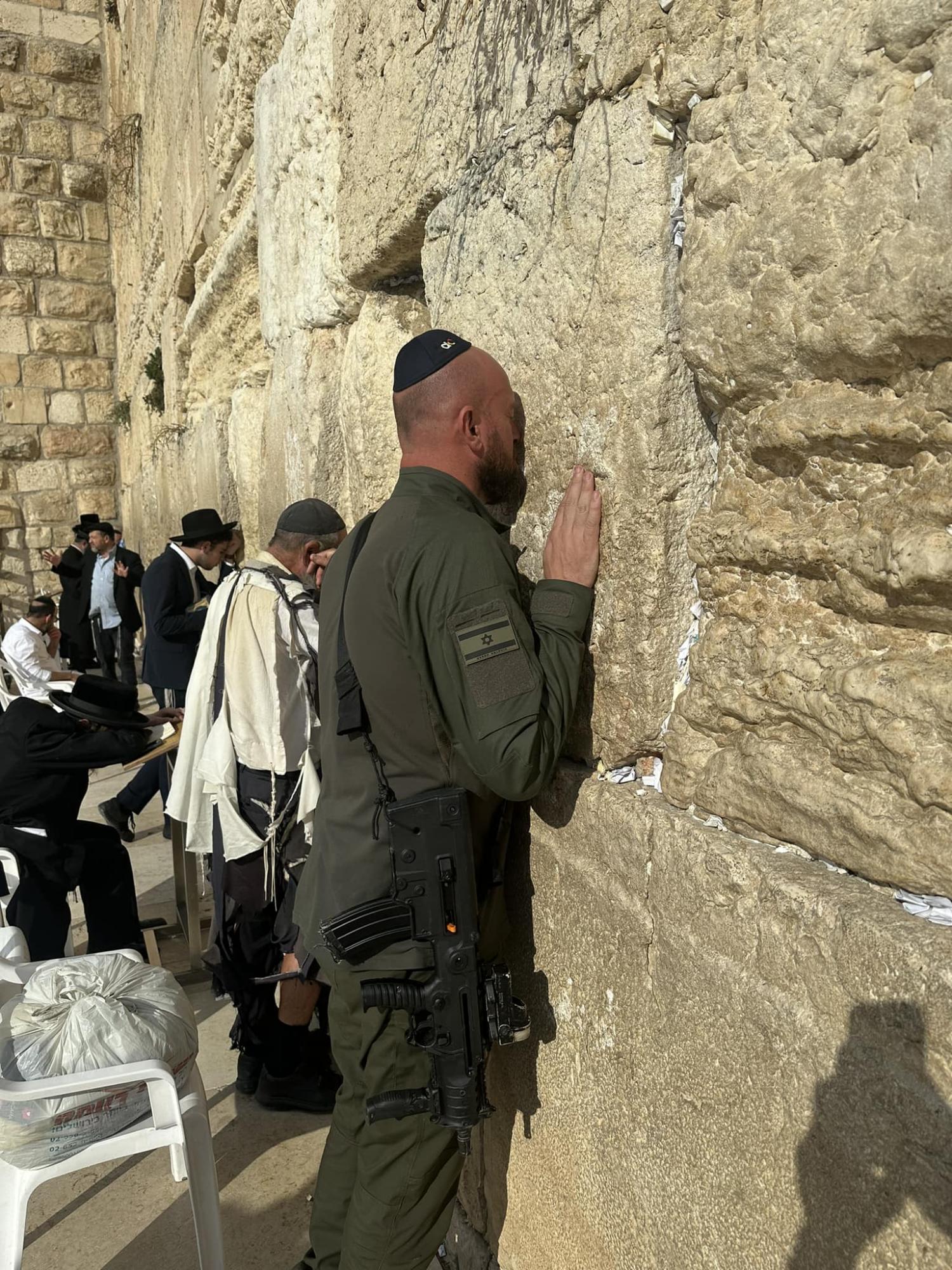
Photo: Israeli society clearly understands what is happening in Ukraine and does not support Russia in any relations, Roman Goldman
A Ukrainian-Israeli forum dedicated to rehabilitation, especially for the military, has been held in Ukraine for several years now. How is Israel currently helping Ukraine with rehabilitation issues, and what model would be suitable for Ukraine, given that there will be more veterans over time?
In my opinion, the best approach for Ukraine is to establish internal infrastructure for rehabilitation, Western evidence-based medicine, and prosthetic technology right where people live. In Israel, a few hundred or a few dozen military personnel can fly for rehabilitation. But the real need is for tens of thousands of patients.
Our organization, Frida, actively collaborates with the Israeli embassy in Ukraine. We host Ukrainian professionals for training, work with NGOs, and help train professional staff in Ukraine. We have been able to assist over 60,000 patients. Every week, medical teams travel to hotspots and provide medical assistance in hard-to-reach areas. The priority areas are Sumy, Chernihiv, Kherson, Donetsk, and Luhansk.
During Russia's invasion of Ukraine, our country has often been referred to as the "European Israel." Because, like in your country, the enemy is on the other side of the border. And the danger always remains. Do you agree with this metaphor, and how can Ukraine coexist with an aggressor country?
It is true! But it is still very important to say that the degree of aggression, and the level of intervention that Israel is experiencing today, is still not comparable to the level of aggression that Ukraine has faced. It is important to correctly label this situation.
Ukraine finds itself in a situation that no European country and Israel have faced. Israel doesn't have planes flying over it, tanks coming in, and such a number of soldiers attacking. Israel is not currently experiencing the same number of rockets launched by Russia daily on peaceful cities in Ukraine. The enemy of Israel is cave-like and primitive, but it is still a different war.
The Ukrainian nation is being built right now. A sense of justice is forming in the country, people understand that they are defending their homeland. If Ukraine continues to develop as a civilized European country, it will be a guarantee of success in all aspects.
